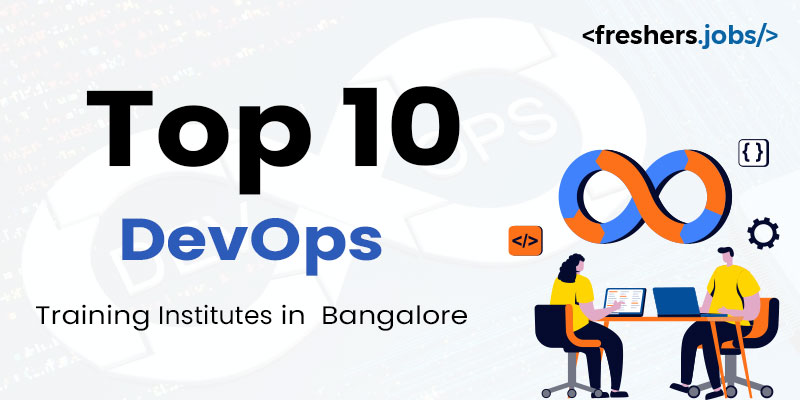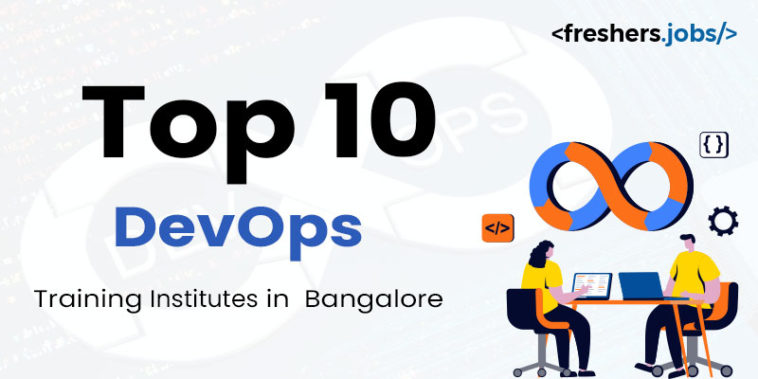DevOps is defined as a set of practices and cultural philosophies that aim to enhance coordination and dialogue between teams working on software development (Dev) and information technology operations (Ops). Agility, efficiency, and collaboration have become desired and crucial for sustaining a competitive edge in the changing corporate landscape characterized by increasing complexity. Integrating Development and Operations (DevOps) practices have emerged as a powerful force, revolutionizing how software is developed, delivered, and sustained.

DevOps goes beyond being a mere set of tools or a methodology; it signifies a cultural transformation that encourages collaboration and communication between development and operations teams. The overarching goal is to dismantle traditional silos, facilitating a seamless and continuous integration of code deployment, infrastructure management, and application delivery. In this blog, we will delve into the core concepts of DevOps and examine how its adoption is reshaping the dynamics of the contemporary business world. Additionally, we will delve into the Top 10 DevOps Training Institute in Bangalore, the role of DevOps in today’s business environment, its merits, components, and the job opportunities it presents.
These are the Top 10 Devops Training Institute in Bangalore.
- FITA Academy
- Edureka
- Simplilearn
- Intellipaat
- Besant Technologies
- Apponix Technologies
- Inventateq
- ExcelR
- Upshot Technologies
- Skillogic
FITA Academy
FITA Academy is a well-regarded training institution that offers a comprehensive array of more than 120 courses accessible online and offline. Recognized for delivering vital technical and professional certifications, the academy consistently ranks among the foremost authorities in the industry. With a team of more than 1,000 trainers with decades of experience, the institute has positively impacted the educational journeys of more than 75,000 individuals. Having established multiple branches in Bangalore, Chennai, Pondicherry, Coimbatore, and Madurai, the academy underscores its dedication to providing top-notch training. This strategic expansion ensures that individuals across diverse regions can avail themselves of high-quality training opportunities.
Why Choose FITA Academy for DevOps Training in Bangalore?
FITA Academy provides comprehensive Devops Training in Bangalore, covering fundamental to advanced-level concepts. A full grasp of DevOps concepts, ecosystems, Linux, its versions, and commands are all covered in the curriculum. Additionally, participants will become proficient with Docker, Puppet, Jenkins, Git, Nagios, and Kubernetes. The training includes hands-on experience with DevOps in the AWS Cloud and participation in live capstone projects. Practical exercises are seamlessly incorporated into the curriculum to equip learners with the essential hands-on skills required in today’s workplace. FITA Academy guarantees a high-quality course that is affordable and available to a wide range of students. The institute offers flexibility in batch schedules, accommodating weekend and weekday classes. Once the program is over, participants who succeed are eligible for placement support.
Tailored Syllabus for DevOps Training in Bangalore
The curriculum at Devops Training Institute in Bangalore is thoughtfully crafted to encompass the foundational core principles of DevOps, offering comprehensive coverage of essential topics. It begins with an introduction to DevOps, followed by thorough sections on Linux Administration and Source Control Using Git. Students gain expertise in Continuous Integration Using Jenkins. The curriculum then explores advanced topics, such as Ansible, Docker, Puppet, Nagios, and Kubernetes. Furthermore, the program extends its examination to the hands-on application of DevOps on the AWS Cloud, ensuring a holistic understanding of key concepts.
Skilled Instructors for the DevOps Training in Bangalore
Participants will interact with highly proficient trainers with practical industry experience in one of the Best Devops Training in Bangalore. These educators are committed to teaching theory while providing students with insightful real-world advice. Their crucial role ensures that learners stay updated on the latest industry trends, providing comprehensive preparation for the dynamic field of DevOps.
Incorporation of Project Presentation Sessions in Devops Training in Bangalore
An exclusive aspect of FITA Academy’s Devops Course in Bangalore is the inclusion of project presentation sessions. Recognizing that hands-on experience is crucial to mastering DevOps and getting ready for a successful career, these sessions give students the tools to apply DevOps principles in real-world circumstances.
Complimentary Placement Sessions post DevOps Training in Bangalore
FITA Academy is committed to providing extensive Devops Training in Bangalore beyond traditional classroom learning. The institute prepares students for the competitive job market through complimentary placement sessions, covering vital aspects such as resume building, interview skills, job placement assistance, and career guidance. Carefully designed, these sessions support students in achieving their career objectives. With more than 1,500 partner organizations, FITA Academy offers a wide range of job placement prospects for graduates in the DevOps industry. By guaranteeing that students have access to bright job opportunities, this vast network helps them make a seamless and effective transition into the working world.
Edureka
Edureka is a reputable online platform that provides a flexible DevOps Training Course covering fundamental to advanced concepts. Although the institute offers a large selection of courses, its major dependence on online instruction may reduce in-person interactions between students and instructors and result in higher costs.
Simplilearn
Simplilearn specializes in DevOps training for beginners and advanced learners, presenting a curriculum enriched with valuable learning materials. The direct relationship between instructors and students may be impacted by their heavy emphasis on online learning, and the cost of the courses may be comparatively greater than at other institutions.
Intellipaat
Intellipaat offers comprehensive DevOps training with real-time assistance. Even if they have a lot of facilities, their focus on online courses may make it more difficult for candidates and trainers to communicate directly.
Besant Technologies
Besant Technologies offers excellent industry experience and focuses on giving DevOps training to increase skills. However, it might not be the best option for anyone looking for a more in-depth educational experience.
Apponix Technologies
Apponix Technologies is an expert in providing DevOps training that is adapted to the demands of the industry. Compared to some other colleges, they may not provide as much placement support for the course they provide.
Inventateq
A comprehensive DevOps training with crucial skill development is offered by Inventateq. For students looking for a more comprehensive and in-depth learning experience, they might not be the best option.
ExcelR
ExcelR focuses on offering specialized DevOps training for demands unique to the industry. In contrast to other institutes, their practical training component might not be as extensive.
Upshot Technologies
Upshot Technologies is an expert in offering DevOps training that covers a wide range of topics. They provide these advantages on the condition that their placement assistance may be comparatively less comprehensive than at some other institutions.
Skillogic
DevOps courses are provided by Skillogic, with an emphasis on teaching fundamental skills. It’s important to remember, nevertheless, that their practical training program could not be as comprehensive as that of certain other institutions.
After doing extensive research, Freshers Jobs carefully chose these institutes, taking into account things like student feedback, brand repute, and a track record of student accomplishments
The Role of DevOps in the Business World
In the contemporary business landscape, the role of DevOps is crucial, acting as a transformative approach to both software development and IT operations. DevOps, an abbreviation for Development and Operations, goes beyond being a set of practices. It represents a cultural shift that underscores the importance of collaboration, communication, and integration between development and operations teams. DevOps plays a pivotal role as a key facilitator for businesses striving to maintain competitiveness in the digital era. Its influence extends beyond the confines of the IT department, shaping organizational culture, collaboration models, and the overall capacity to consistently and efficiently deliver value to customers. With businesses actively embracing digital transformation, DevOps remains an essential cornerstone for success in the present business world.
What is DevOps?
The term “DevOps” describes a set of procedures, tenets, and cultural tenets intended to improve and expedite coordination and dialogue between teams working on software development (Dev) and IT operations (Ops). The primary goal of DevOps is to establish an environment where traditionally separate teams can work together more efficiently to deliver software applications and services rapidly, reliably, and at scale. By embracing DevOps practices, organizations aim to achieve various benefits, including quicker time-to-market, increased deployment frequency, reduced failure rates in new releases, shorter fix times and improved mean time to recovery. It is not only about tools. It represents a holistic approach that involves people, processes, and technology working in unison to deliver high-quality software with increased efficiency and collaboration.
Advantages of DevOps
- Accelerated Time-to-Market: DevOps practices facilitate swift and automated software deployment, such as continuous integration and delivery. This leads to quicker release cycles, enabling organizations to introduce new features and updates to the market rapidly.
- Increased Deployment Frequency: DevOps advocates for continuous deployment and automation, resulting in a higher deployment frequency. This allows organizations to deliver smaller, incremental changes more frequently, minimizing risks associated with large and infrequent releases.
- Enhanced Software Quality: Automated testing processes and a focus on continuous testing within DevOps contribute to elevated software quality. Early problem detection and resolution in the development cycle guarantees that the software satisfies quality requirements prior to going into production.
- Improved Collaboration: By tearing down the old barriers that separate the development and operations teams, DevOps promotes teamwork. Improved communication and shared responsibilities lead to better understanding and cooperation among organizational functions.
- Reduced Risk of Failures: Continuous monitoring and automated testing within the DevOps pipeline help identify and rectify issues before they reach production. This diminishes the likelihood of defects and failures in the live environment, enhancing overall software reliability.
- Enhanced Efficiency through Automation: Automation is a fundamental aspect of DevOps, covering tasks such as code integration, testing, deployment, and infrastructure provisioning. Automation speeds up procedures, reduces human error, and frees up teams to work on more creative and strategic projects.
- Scalability and Flexibility: DevOps practices, such as infrastructure as code (IaC), empower organizations to scale their infrastructure based on demand. Applications can handle a range of workloads thanks to this scalability, which gives them flexibility to adjust to changing requirements.
- Consistent and Repeatable Processes: Infrastructure as code and automation guarantee consistent and repeatable processes. This mitigates the risk of configuration errors and ensures that deployments are reproducible, irrespective of the environment.
- Feedback Loops for Continuous Improvement: By integrating feedback loops at every stage of the development lifecycle, DevOps promotes continuous improvement. This iterative approach enables teams to learn from each release, making adjustments and enhancements for future iterations.
- Cost Optimization: Through automation and efficiency improvements, DevOps assists in optimizing costs. Reduced manual effort, faster time-to-market, and enhanced resource utilization contribute to organizations’ more favorable return on investment (ROI).
- Improved Security Practices: DevOps integrates security measures throughout the development lifecycle, promoting a DevSecOps approach. Organizations can decrease vulnerabilities and improve the overall security posture of their apps by addressing security concerns early on.
- Employee Satisfaction: DevOps fosters a collaborative and innovative work culture, potentially leading to higher job satisfaction among team members. By reducing tedious and repetitive activities, the emphasis on automation and streamlined processes also frees up team members to concentrate on more interesting and difficult aspects of their jobs.
Crucial Components of DevOps
Cultural Aspects
- Collaboration: DevOps emphasizes the significance of dismantling organizational walls between development and operations teams and promoting a cooperative culture where teams share tasks, collaborate easily, and concentrate on generating business value.
- Communication: Effective communication is a foundational element in DevOps. Teams must communicate openly and transparently to share information, address challenges, and ensure alignment toward common objectives.
- Shared Responsibility: DevOps promotes a shift from individual team responsibilities to shared responsibilities across the entire development and operations lifecycle. This ensures accountability from everyone for the success of the software delivery process.
- Continuous Learning: DevOps strongly emphasizes a culture of continuous learning and improvement. Encouraging teams to experiment, learn from failures, and consistently adapt processes is crucial for enhancing efficiency.
Process-related Elements
- Continuous Delivery (CD): CD extends CI by automating the entire software release process, ensuring that software is consistently in a deployable state and ready for release at any time.
- Continuous Deployment: After a code change has gone through the CI/CD pipeline, it is automatically deployed to production, taking automation a step further. This minimizes manual interventions and accelerates feature or fix delivery.
- Infrastructure as Code (IaC): IaC involves managing and provisioning infrastructure resources through machine-readable script files, ensuring consistent and repeatable infrastructure deployment, reducing configuration errors, and enhancing scalability.
- Monitoring and Logging: Continuous monitoring of applications and infrastructure provides real-time insights into system performance. Logging and monitoring tools assist in promptly identifying and addressing issues.
Technical Components
- Automation Tools: DevOps utilizes various automation tools, including configuration management tools (e.g., Ansible, Puppet), build tools (e.g., Maven, Gradle), and deployment tools (e.g., Jenkins, Travis CI).
- Containerization and Orchestration: Applications and their dependencies can be packaged into containers for consistent deployment with the help of containerization tools like Docker. Orchestration tools like Kubernetes manage and automate containerized applications’ deployment, scaling, and operation.
- Collaboration and Communication Tools: Tools like Slack, Microsoft Teams, or communication features within integrated development environments (IDEs) support real-time communication and collaboration among team members.
- Security Measures (DevSecOps): In a DevSecOps approach, security practices are integrated throughout the development lifecycle. Early on in the process, security concerns can be found and fixed with the aid of automated security testing, code analysis, and compliance checks.
Career Opportunities in the DevOps Field
- Entry-level DevOps Professional: These individuals assist in implementing and maintaining CI/CD pipelines, support automation tasks, and collaborate with development and operations teams. They possess a basic understanding of DevOps principles, familiarity with version control systems, and basic scripting skills.
- Release Coordinator: Coordinating and managing software releases, ensuring effective team communication, and supporting deployment. Skills required include strong communication skills, attention to detail, and an understanding of release management processes.
- DevOps Engineer: These professionals design, implement, and manage CI/CD pipelines, automate infrastructure, and collaborate with cross-functional teams to enhance development processes. Skills include proficiency in automation tools, experience with infrastructure as code, and strong collaboration and problem-solving abilities.
- Site Reliability Engineer (SRE): Focused on ensuring the reliability and performance of systems, automating operational tasks, and participating in incident response and post-mortems. Skills include a robust understanding of systems and infrastructure, scripting and programming proficiency, and experience in monitoring and observability.
- Senior DevOps Engineer: Leads the design and implementation of DevOps practices, mentors junior team members, and contributes to strategic planning for development and operations. Requires in-depth knowledge of automation tools, extensive CI/CD experience, and strong leadership and communication skills.
- DevOps Architect: In charge of developing and executing DevOps solutions for complex projects, overseeing architecture decisions, and providing guidance on best practices. Skills include deep expertise in DevOps technologies, architectural design capabilities, and the ability to lead and influence technical decisions.
- DevOps Manager: Leads and manages DevOps teams, oversees project delivery, and collaborates with other departments to align DevOps practices with organizational goals. Skills required include leadership and team management abilities, strategic thinking, and the capacity to align DevOps initiatives with business objectives.
- Director of DevOps: Sets the strategic direction for DevOps initiatives, oversees multiple teams, and ensures alignment with the overall business strategy. Requires strong leadership, strategic planning, and organizational management skills.
- Cloud DevOps Engineer: Specializes in implementing and managing DevOps practices in cloud environments, such as AWS, Azure, or Google Cloud. Skills include expertise in cloud platforms, infrastructure as code, and cloud-native technologies.
- Security DevOps Engineer (DevSecOps): Responsible for integrating security practices into the DevOps pipeline, conducting security assessments, and ensuring compliance with security standards. Proficiency in security principles, experience with security technologies, and the ability to integrate security measures into the DevOps process are among the skills required.
In the complex terrain of today’s competitive market, the incorporation of DevOps practices emerges as a transformative influence, restructuring the landscape of software development and delivery. DevOps, not confined to a mere set of tools, represents a cultural shift fostering collaboration, communication, and the breakdown of traditional silos. This blog seeks to delve into the essential concepts of DevOps, examining its significance, benefits, components, and career prospects in the dynamic business environment. Additionally, we explored the Top 10 DevOps Training Institute in Bangalore.




